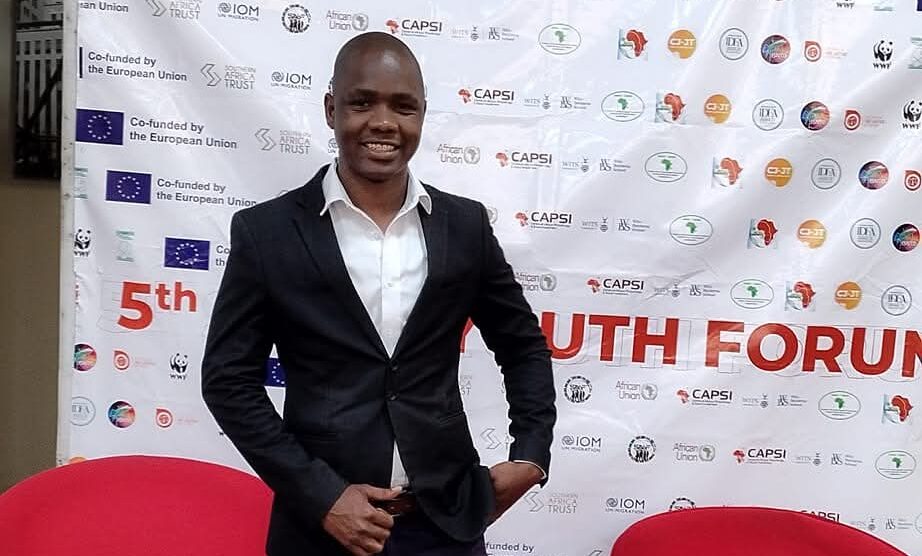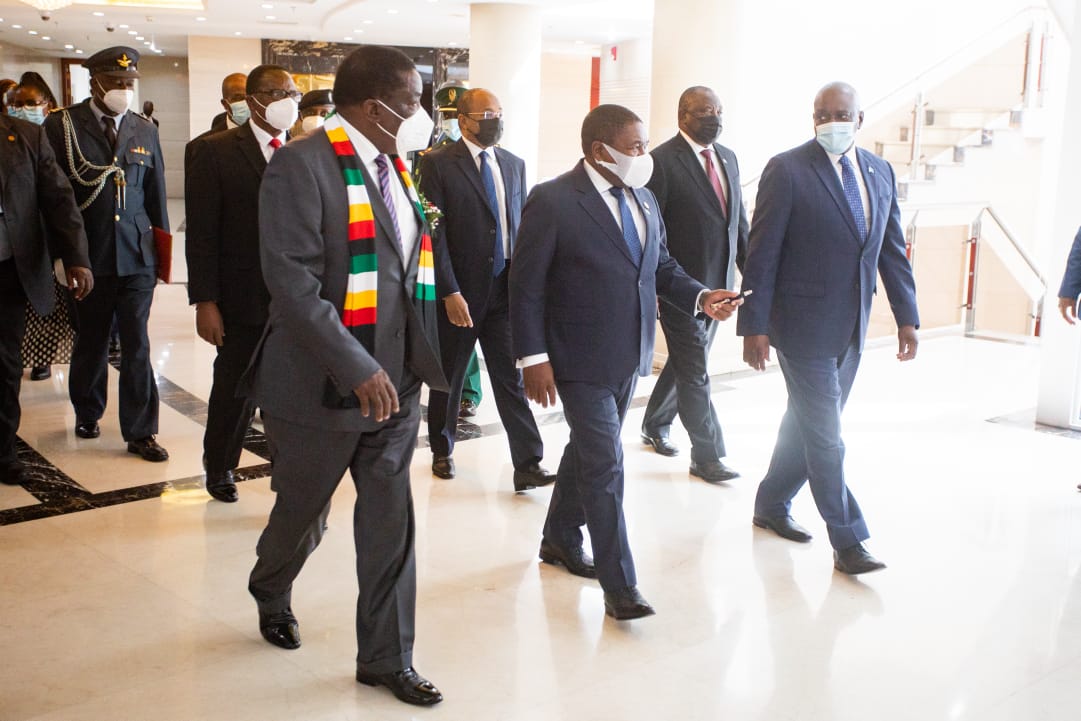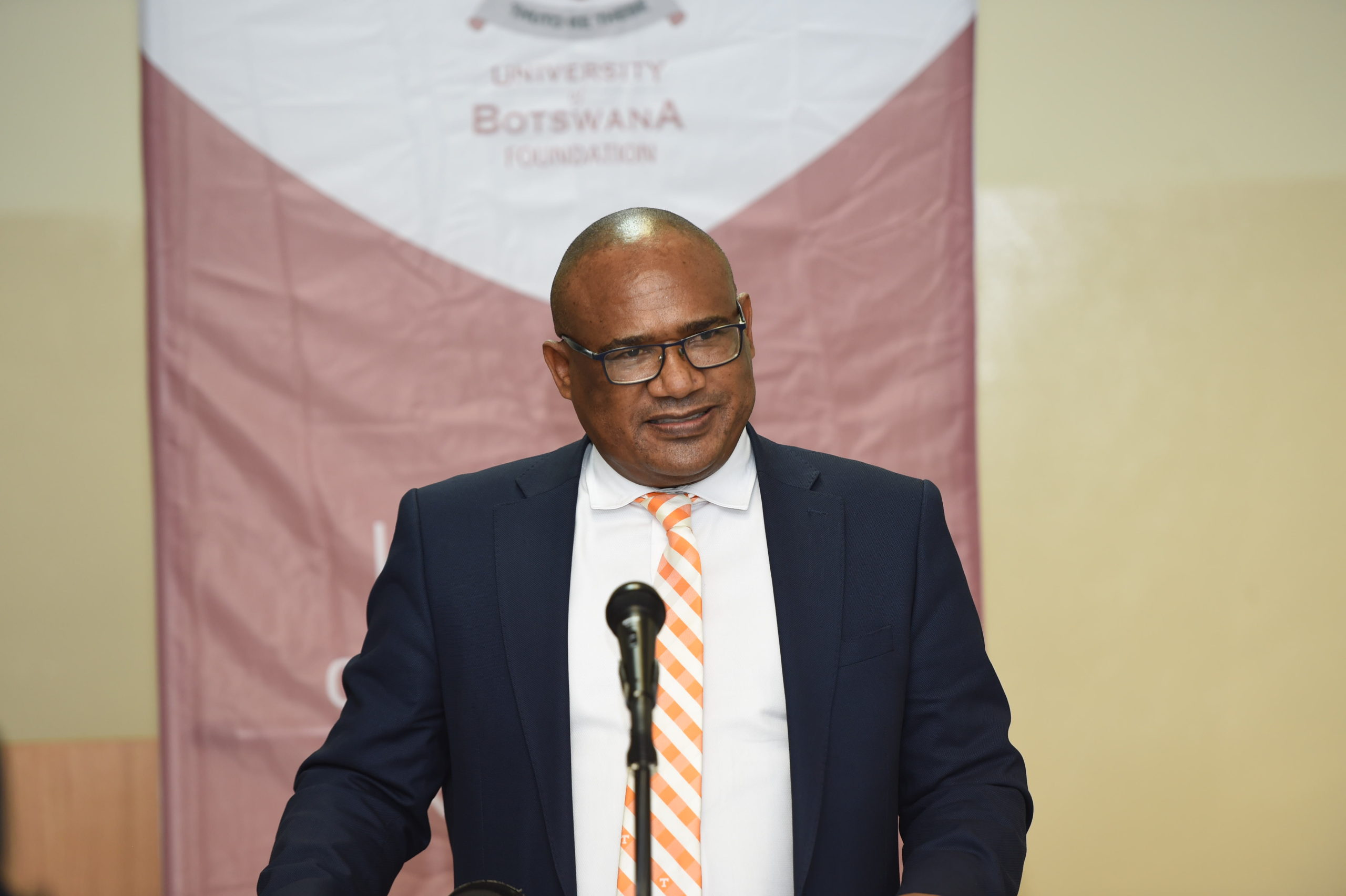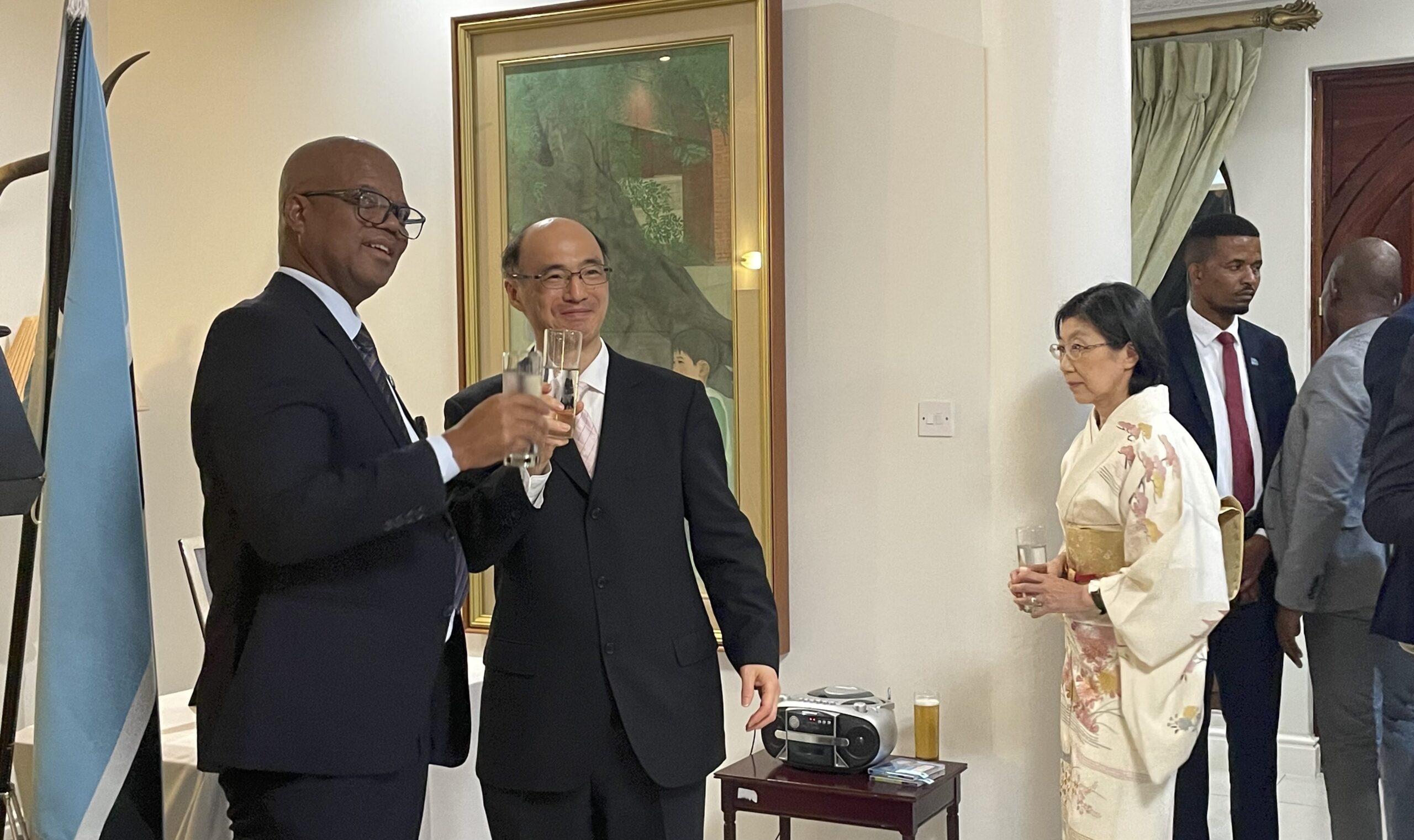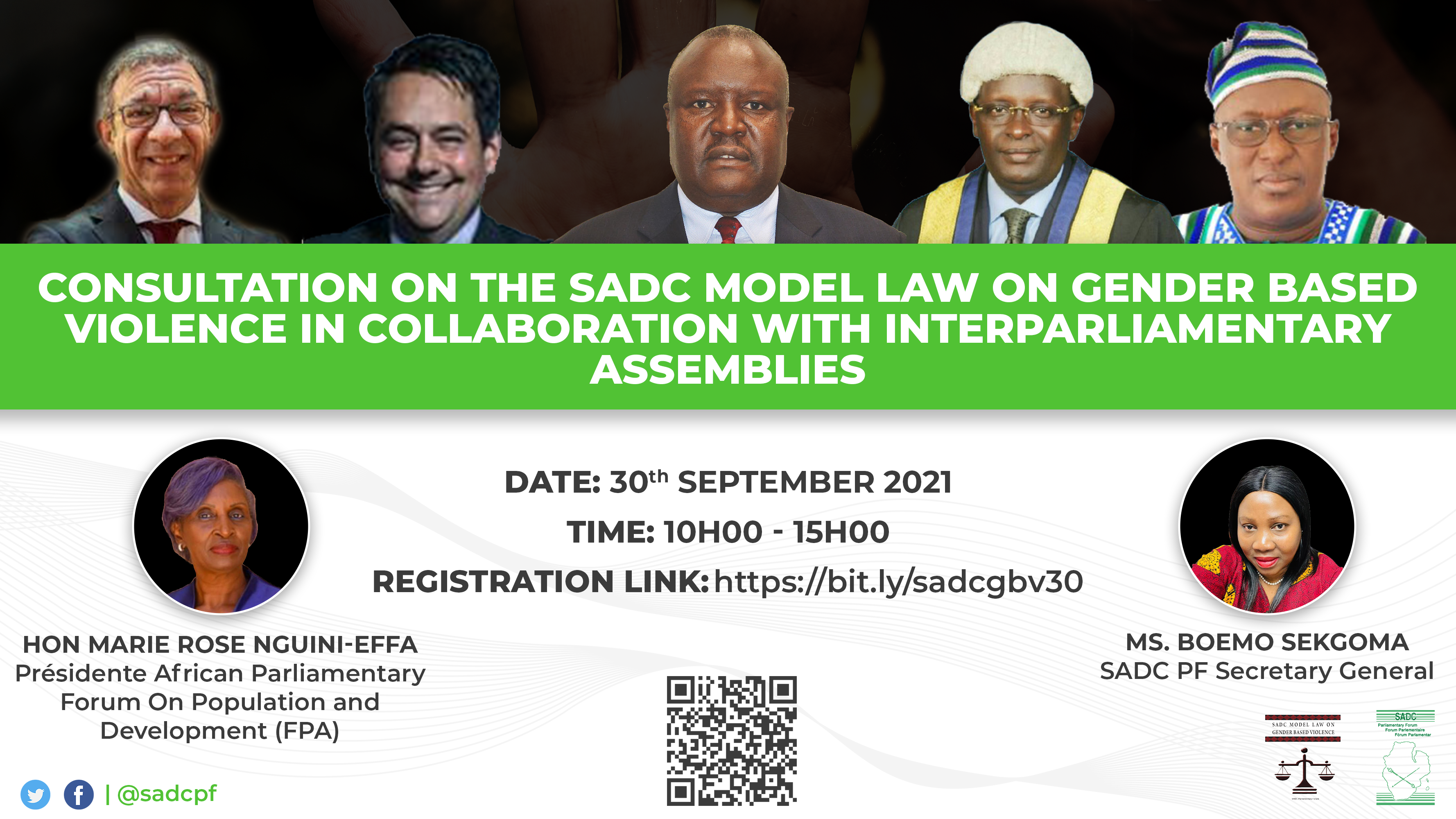
STATEMENT BY THE SECRETARY-GENERAL DURING STAKEHOLDER CONSULTATIONS FOR THE GBV MODEL LAW WITH WORLD, CONTINENTAL AND REGIONAL PARLIAMENTS – ON 30TH SEPTEMBER 2021
Ms. Boemo Sekgoma
It is with immense pleasure that I welcome you to this inter-parliamentary event under the auspices of the SADC Parliamentary Forum.

This event is unlike others because as we discuss the finalisation of the GBV Model Law, we are also reinforcing not only the valued bonds that we share between national Parliaments of Africa and around the world but also the bonds of solidarity between regional and international parliamentary organisations which stand fiercely as the custodians of parliamentary democracy from a supra-national perspective. Thus today, we are celebrating parliamentarism and inter-parliamentary cooperation in a unique dimension under the umbrella of the SADC Parliamentary Forum.
As Secretary-General of the SADC-PF, I am honoured to be addressing this diverse audience of distinguished representatives from august organisations all around the world. In this respect, I wish to start by paying tribute to the noble cause of inter-parliamentary cooperation and by recognising the resilience of inter-parliamentary networks around the world that have staunchly stood the test of time despite operational challenges.
Yet, while inter-parliamentary organisations continue to promote stable democracies and the sovereignty and independence of Parliaments worldwide, there is a lot that remains to be done for democracy and human rights to be instilled across the world. I am confident that you will corroborate the Forum’s view that together, we can go further.
I. Why is engagement with inter-parliamentary organisations important?
Having said this, I wish to turn to the mainstay of today’s theme of discussions which is the SADC Model Law on GBV. It is indeed apposite that inter-parliamentary organisations have a comprehensive say on the SADC Model Law on GBV which is currently in process of finalisation.
As you may be aware, the Model Law on GBV entailed a wide calendar of consultations that have been made with several stakeholders from the public and private sectors as well as the judiciary. Inter-parliamentary organisations are peer organisations to the Forum and it was imperative to garner your esteemed insight as a final step before validating and adopting the Model Law.
Moreover, the participation of inter-parliamentary organisations will be quintessential to disseminate the SADC Model Law on GBV within the SADC region and beyond its borders. The SADC Model Law on GBV is not only a Model Law for SADC. Gender-based violence knows no bounds and is not delimited by territory. GBV is a contemporary human rights issue and it can cause serious human rights violations such as the right to physical integrity, the right to health, and the right to life. GBV affects all regions of the world without fail and it preys on the wealthy as well as the poor. At the same time, I am confident that all major inter-parliamentary organisations around the world subscribe to the tenets of the Universal Declaration of Human Rights, from which have stemmed the ensuing International Covenant on Civil and Political Rights and the corresponding International Covenant on Economic, Social and Cultural Rights.
If we are to believe and uphold the principles laid down in international conventions, then GBV is a problem for all without distinction. In this respect, Member States have a duty to prevent their citizens from suffering inhuman, degrading treatment and punishment. If we are to believe and uphold the principles laid down in international conventions, then GBV is a problem for all without distinction.
From this perspective, the SADC Model Law on GBV is thus a Model Law that can be utilised for benchmarking purposes by all inter-parliamentary organisations around the world, and by extension all corresponding national Member Parliaments. While the SADC Model Law on GBV will remain as a benchmark and guiding reference, the Model Law may be adapted to frame legal frameworks on GBV at both the regional and domestic levels.
As observed with other Model Laws developed by the Forum, Model Laws have the potential of exerting ripple effects and influencing regions and people beyond the geographical scope of the SADC. I thus invite you to consider the session of today as serendipitous, and as a stepping stone towards further collaborative opportunities. Inter-parliamentary organisations can thus act as emissaries to share the Model Law on GBV and assist other regions of the world in enhancing their respective GBV legal frameworks.
II. What are the issues which the Forum intends to advance with inter-parliamentary organisations
In your capacity as representatives of inter-Parliamentary organisations, you will be in the right position to attest to the fact that Model Laws only mark a beginning. Indeed, the Model Law on GBV will need to be progressively domesticated once adopted by the Forum, and thereafter the Forum will continue to monitor the domestication efforts made by the Member States through the work conducted by its oversight organ, the Regional Parliamentary Model Laws Oversight Committee (RPMLOC).
Thus, looking forward, the Forum and inter-parliamentary organisations need to join hands and muster joint efforts to discuss issues such as the duality of norms and the normative divide that exists between national and international law, the concepts of monism and dualism, the need to identify the bottlenecks to domestication, to cite a few. The meeting of today is thus also to reflect on the ways and means to pave the way forward for the SADC Model Law on GBV by engaging reflections to jointly tackle GBV by capacity development.
This will include regularly building the capacity of Parliamentarians on identifying the challenges to domestication and sharing cross-learning experiences that can save time and energy for pro-active MPs who want to bolster their GBV frameworks at the national level. Capacity development will also need to be targeted to the legislative staff of State law offices and Parliaments, as well as those that assist Gender Caucuses.
There is also a further need for inter-parliamentary organisations including the Forum to reflect on the value that Model Laws or regional instruments made by inter-parliamentary bodies bring to the existing body of international law, and in this respect, how far can the Model Law on GBV influence international law.
Within the scope of its mandate under the Strategic Plan (2019-2023) of the Forum, the SADC-PF is thus poised to act as a think tank to attract ideas and proposals from peer inter-parliamentary organisations around the world in view of spearheading issues such as benchmarking and domestication that need to be promptly overcome for Parliamentarians to incorporate Model Laws within the national legal system, including the SADC Model Law on GBV which would be the subject of today’s discussions.
In addition, the Forum will be keen to collaborate with like-minded inter-parliamentary organisations to pool resources and develop advocacy content that can further facilitate the assimilation of the SADC Model Law on GBV not only by Parliaments but by other stakeholders in the law-making process such as Line Ministries, technocrats, civil society organisations, to cite a few. Advocacy content includes parliamentary manuals, brochures, as well as animated videos, cartoons, or any other content that can appeal to the attention of stakeholders and buttress the need to address GBV through a legislative framework, with the Model Law serving in the backdrop as a guiding normative standard.
III. Implementing a plan for the Forum to disseminate the Model Law
I wish to end by saying that your collaboration today is highly appreciated as the Forum embarks into the final stages of the adoption of the SADC Model Law on GBV. In the months to come, the Forum will be finalising its dissemination plan for the SADC Model Law pursuant to its adoption by the 50th Plenary Assembly, and representatives present today are invited to engage their organisations to participate constructively to this exercise. The Forum firmly believes that baby steps can turn into giant steps by the earnest collaboration of like-minded organisations which are unified by the shared vision to eradicate GBV once and for all.
On this good note, I wish to thank you again for your attendance today, and I wish you all a pleasant session.
The consultative meeting was attended by Hon. Mémounatou Ibrahima, Third Deputy Speaker of the Ecowas Parliament; Hon. Dr. Anne Itto Leonardo, Chairperson of the East Africa Legislative Assembly Women Caucus; Hon Pamela Massay Simon, Secretary to the EALA’s Women’s Caucus; Hon. Marie Rose Nguini-Effa, President African Parliamentary Forum on Population and Development (FPA); Mr Galal Nasir, Head of Committee Documentation Research and Library Division at the Pan African Parliament (PAP); Ms Bénite Dibateza, Programmes Officer and Network Coordinator for the Network for Women Parliamentarians, Commonwealth Parliamentary Association (CPA); Ms Brigitte Filion, Consultant, Gender Partnership Programme, Inter-Parliamentary Union (IPU); Hon Mr Klaus Welle, Secretary General of the European Parliament Ms Eva Jhala the Legal drafter; as well as citizens of the SADC Region, East and West Africa and the globe.






